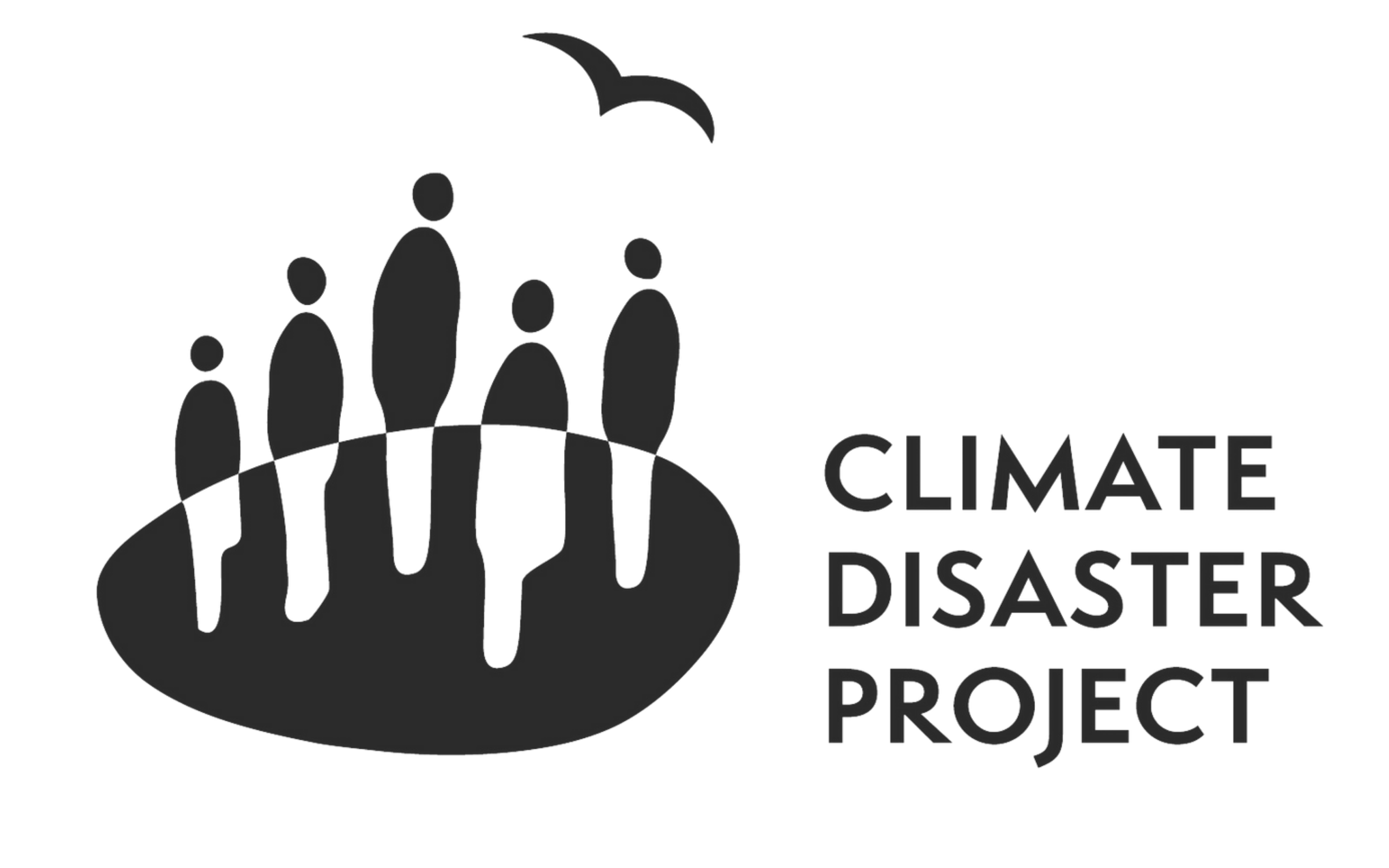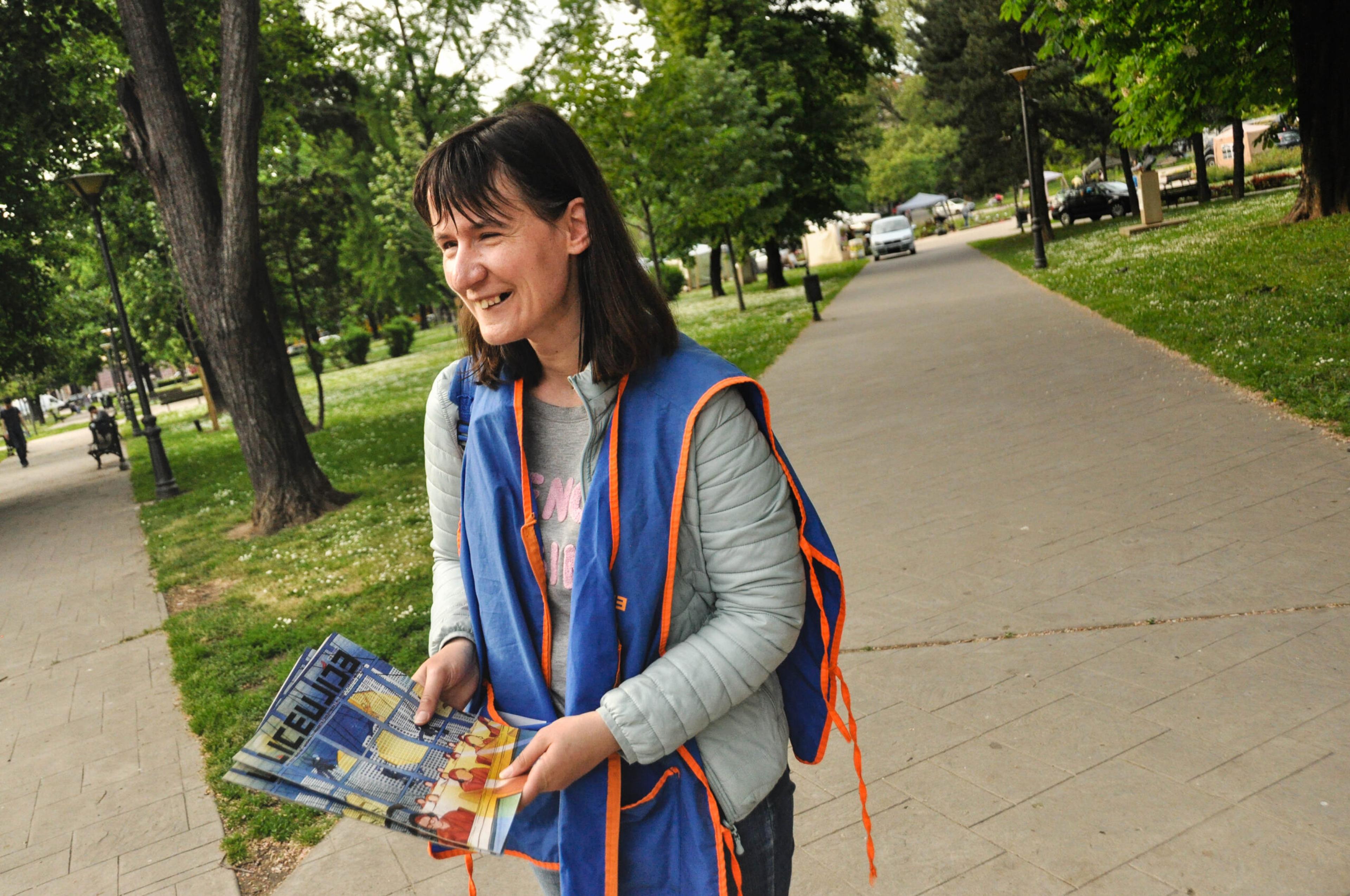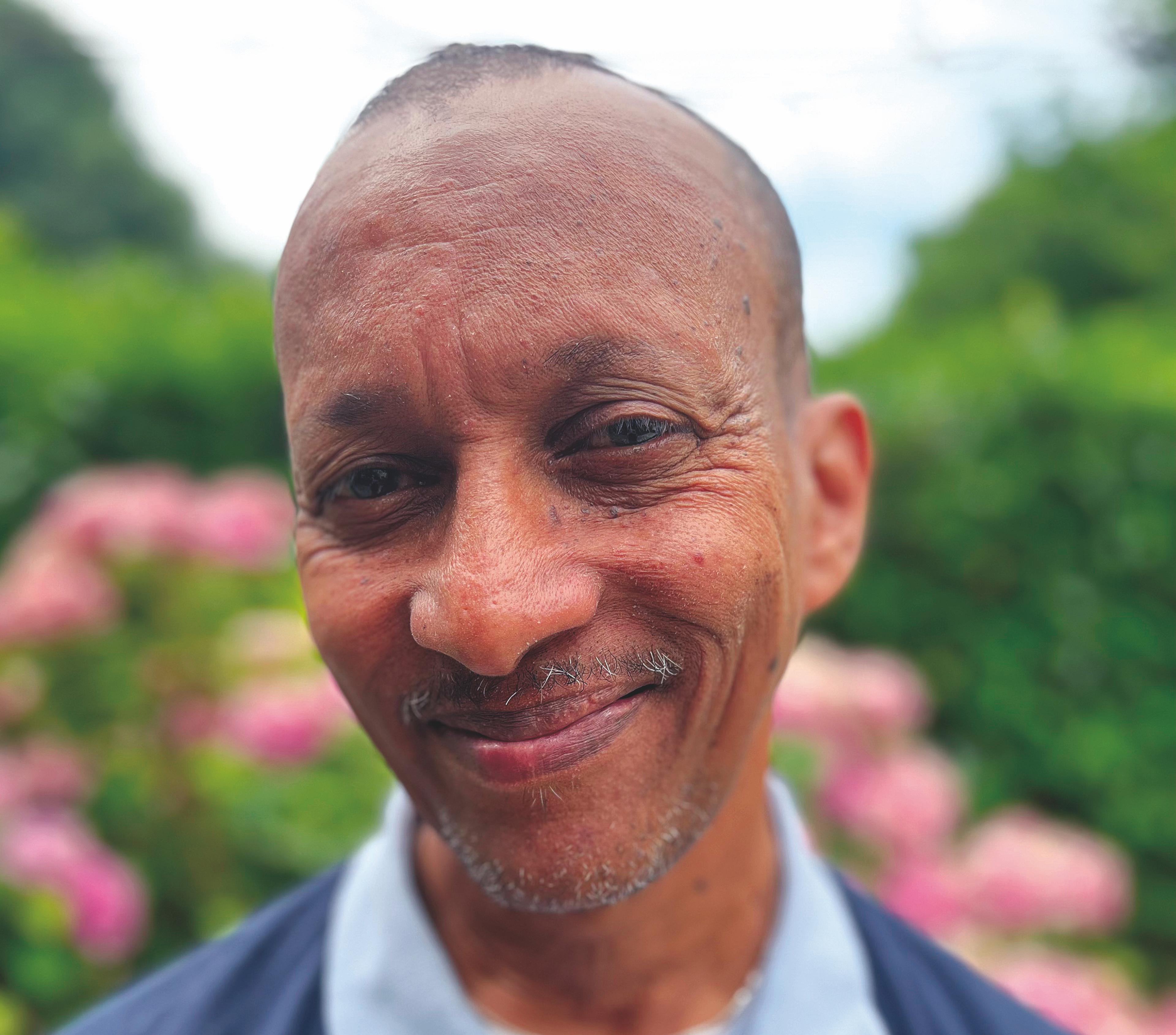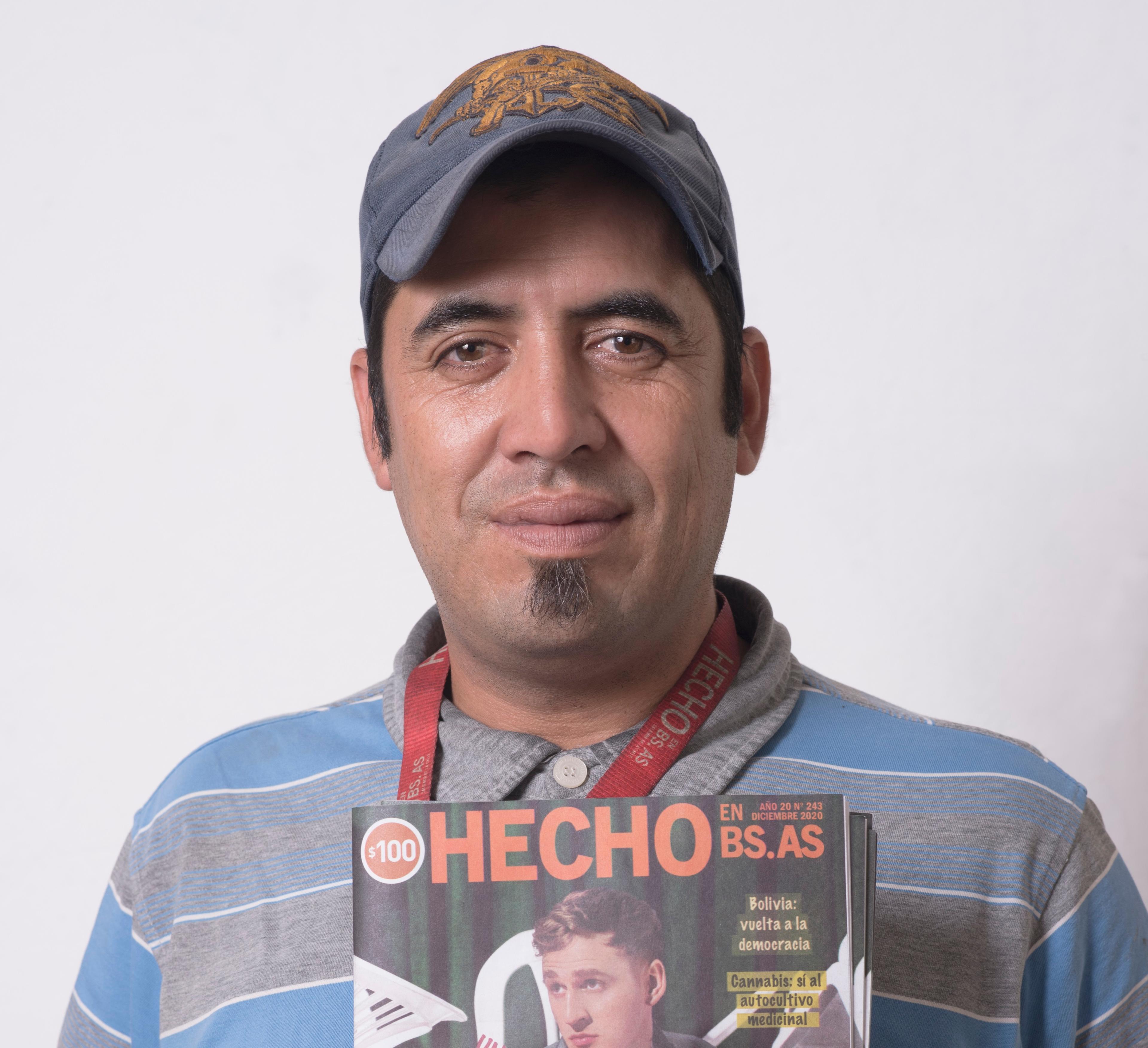Megaphone’s Climate Disaster Project: “It’s a shame that it took something drastic to realise that people needed help”
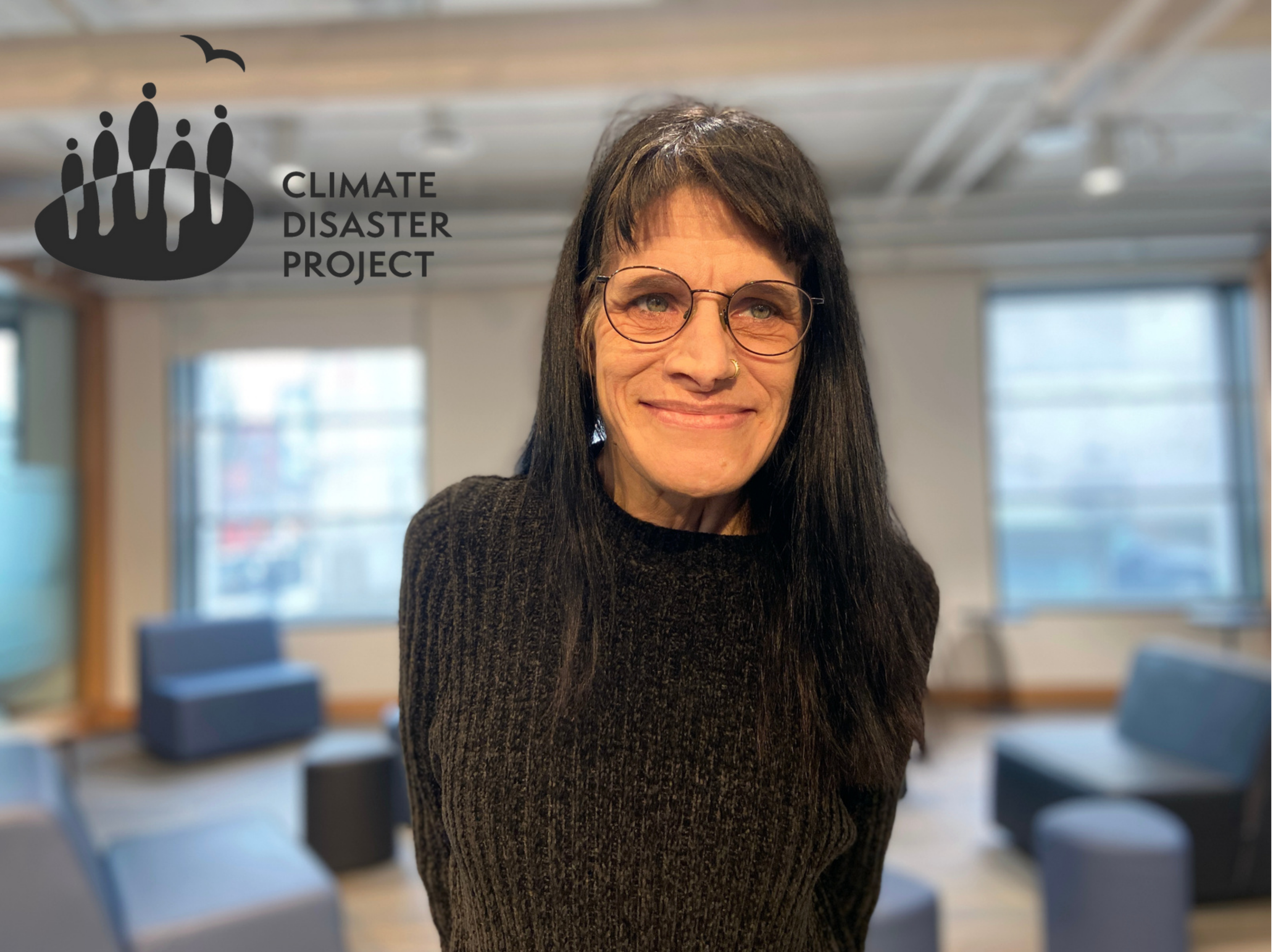
Julie Chapman says that despite its urgency, climate change is not high on the list of priorities for most people living in poverty in the Downtown Eastside. 'A lot of people are worrying about the basics: where they're going to get their next meal, have a shower, get clean clothes, somewhere they can sleep that's relatively safe and welcoming,' she says. Photo by Francesca Fionda.
By Julie Chapman
as told to Eleni Vlahiotis
- Vendor stories

As world leaders make potentially generation altering decisions about the future of planet Earth, people on the margins are experiencing first hand the impact of environmental degradation and climate change. A collaborative storytelling endeavour called the Climate Disaster Project - which employs a trauma-informed co-creative process - collects first-hand accounts of what it was like to survive recent heatwaves and wildfires in British Columbia, Canada. Megaphone vendor Julie Chapman writes about experiencing the heat dome phenomena last year while working as a peer support outreach worker for Sex Workers United Against Violence.
East Vancouver, Canada
Western North America Heatwave, 2021
Julie Chapman is a writer and vendor for the street paper Megaphone magazine. She has worked for the organization since 2002, when she entered its annual photography contest called Hope in Shadows. She grew up in Kitsilano and moved to the Downtown Eastside in the early 2000s, after having two sons and ending a 10-year relationship.
She lives alone in supportive housing and spends a lot of time with her two cats.
“I sound like an old lady almost, but yeah, my cats are so supportive and so therapeutic for me. It's amazing. It's got me through a lot of times for sure,” says Julie.
She also plays music in her spare time, on an upright piano that was gifted to her many years ago. A versatile writer, she often puts her poetry to music.
When the heat dome broke out, she was working as a peer support outreach worker for Sex Workers United Against Violence, an organization that fights for the rights of sex workers in Vancouver. At the time, she was doing her usual work: peer support, outreach and checking up on members of her community.
It was a different kind of heat. Not just hot. It was really heavy. It took the wind right out of you, almost. I'd be in a cool shower – probably a couple hours at least — and as soon as I’d get out, it'd be hot again. It was tiresome. It took a toll on people. It was really hard to function normally on a good day, because you didn't have that energy factor and it was so hot all day and night. You didn't want to do anything. You just want to sit there and do nothing.
Plus you could see the heat dome, because my place faces the mountains. Once the heat came in, it trapped all the smoky air from the forest fires. Even for me, and I'm not asthmatic. I could feel the heaviness of it in my chest. There was that smokey smell in the air, as well. Sometimes I'd get a little bit of a sore throat if I would go outside for a while. It was not normal at all.
A lot of people were having health issues. I saw a lot of people were taken away in ambulances.I never did find out if they were okay or not. I have no idea what the statistics or numbers were, but I know there was a lot more than usual. Not just overdoses, but from heat exhaustion and sun stroke.
It hit a lot of people in vulnerable positions very hard.My co-workers and I were trying to check in with people, because a lot of the time they wouldn't want to ask for support. We're specifically trying to support sex trade workers, helping them out, going to streets that people don't know about, or that are industrial. People don't walk down those roads at all. It's isolated and people don't think to go check in on the women and trans people that are working down there.
If they had any signs of any sunstroke, or anything like that, we would say, "Do you think you'd be strong enough to be able to come walk to the drop-in centre and come and hang out for a little while, get some water? You don't have to stay there long if you don't want to. We'll walk with you, we'll take you there." If you left them on their own, they probably wouldn't have gone, and we don't want to leave them there. They probably would've been OK, but why take that chance? "Probably" isn't good enough to me. They need to be safe.
The heat dome caught people off guard. I remember the city workers were scrambling around, trying to set up cooling stations because they realized how hot it was. People that are stuck out in the street don’t have a place to go into to cool down or get water. Water was the main issue.
You could see the heat dome, because my place faces the mountains. Once the heat came in, it trapped all the smoky air from the forest fires. I could feel the heaviness of it in my chest. There was that smokey smell in the air. Sometimes I'd get a little bit of a sore throat if I would go outside for a while. It was not normal at all.
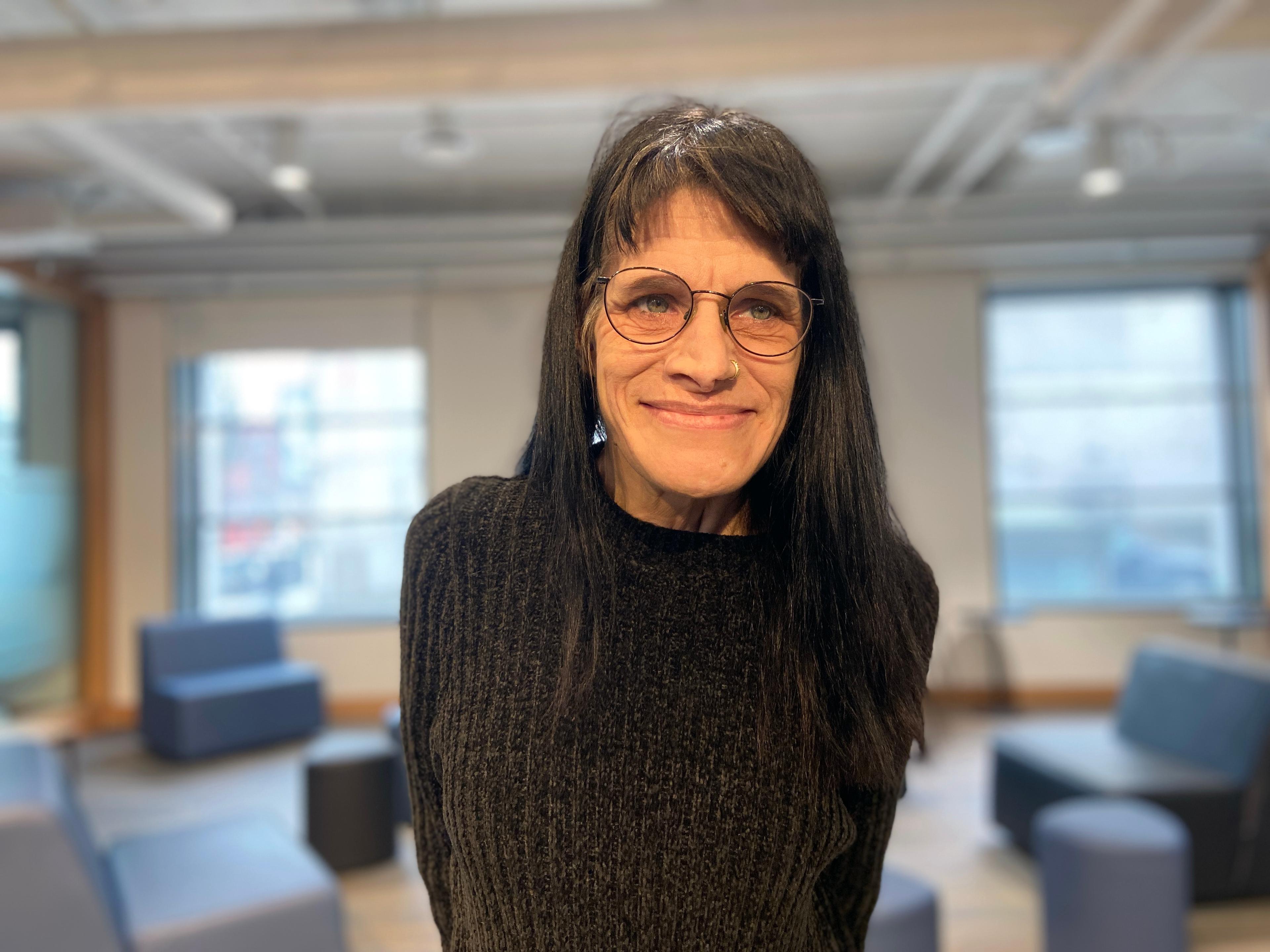
Photo by Francesca Fionda
They built some drinking fountains out here. It was a great thought, but it didn't last too long. People would do stupid things like take the pipes out, thinking they could get copper piping out of it or something to cash in, or they would get overused, and they would break down. The city didn't have the capacity to keep up with it. It's just a money pit to them.But that's people's lives also. How do you put a price on that? I can’t.
People, when they're put in a difficult situation, can be very honourable and compassionate. People that didn't reach out before were making extra effort, checking in with people, because they knew they weren't doing the best. I would see people going and buying cases of bottled water at London Drugs and then start handing out bottles to people on the block. Just doing a good deed. Just having that human touch — somebody that actually gives a darn — means the world to some people, because they don't have anybody, or they isolate. To them that's everything.
It's too bad it takes something bad or disastrous to have that happen. It bothers me a lot. I can't help everybody, and I can only help those who want to be helped. And unfortunately, it's overwhelming at times, but I'm still going to keep doing what I'm doing: asking people how they are and if they need anything Just seems like a no-win situation sometimes. But, I guess it's better than nothing.
Once it was over with, all that extra outreach poof, disappeared, as fast as they came in. I thought, "Wow, that's pretty bad." I mean, it's good they wanted to help, but it's bad that they just disappear again. They need that help all the time down here. It's not just in these hot times; all year ’round people need this support. It was bittersweet. Hopefully, it brought more awareness to the neighbourhood, that people need that help all the time, not just during a heat wave or a heat dome.
The heat dome made me a lot more aware of climate change. I mean, I've always heard about it, but it made it that much more real, when it was right there. You can't ignore it, because you're in it. And maybe it's gone now, but it's not really gone. It's still a problem, even if it doesn't feel like a problem now.
It’s a lot of survivors down here, so it's one more thing thrown in their way. People are wrapped up in their own stuff, and they're trying to figure out where to stay, never mind a meal. To them, climate change is not really something they think about a lot, because they have other issues. A lot of people are worrying about the basics: where they're going to get their next meal, have a shower, get clean clothes, somewhere they can sleep that's relatively safe and welcoming.
They have a lot more on their mind, because they're living day-to-day just to survive, right now. To them, it’s not a real big priority. You think it should be a given, but a lot of the time, just to have one meal, people have to fight. It's just not in their priorities. They just need to make sure they're going to get to the next day, never mind what's far in the future.
Eleni Vlahiotis is a recent graduate of the University of British Columbia’s journalism school. She’s an editor with The Conversation Canada, as well as a freelance journalist and essayist who writes on feminism, media, politics and culture.
